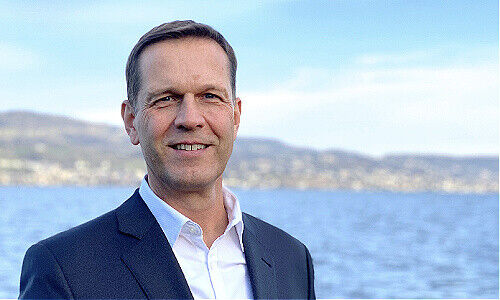The firestorm over Credit Suisse focuses on what multiple scandals focus mean for the Swiss bank and its shareholders. But what do they mean for clients?, banking expert Matthias Hunn writes for finews.com.
Credit Suisse's clients want the bank to communicate honestly as well as act prudently and fairly – and put the interests of its clients first. Instead, they've gotten something different entirely:
- The bank has repeatedly proven it cannot accurately judge risks
- The bank pleaded guilty to conspiracy and employees jailed
- Management spied on each other
- The communication to clients (in terms of using the best products available in the market) and investors (lifting the penetration of the bank's products in client portfolios) is out of sync. Clients can't entirely trust their advisors. The bank has repeatedly been warned by regulators of inadequate capital
- Roughly 1,400 so-called material risk-takers share more than 1.1 billion Swiss francs ($1.1 billion) annually. Risk-takers? They are employees shielded from genuine entrepreneurial risk
What are the consequences for clients, some of whom have suffered losses as a result of the scandals?
- CEO Thomas Gottstein signaled that fund investors in Greensill would be left sitting on the products' losses
- Credit Suisse sold its clients convertible bonds issued by Wirecard
- As part of the IPO consortium for Luckin Coffee, the bank sold its clients the stock
- Credit Suisse's stake in York Capital illustrates that it sold these products actively as well
The odds of tracking client behavior from outside are limited, but net new money is an indicator. Globally, Credit Suisse has recorded inflows as opposed to withdrawals in the last ten years it isn't clear how much of it happened organically, or through acquisition.
War 2020 ein Wendejahr?
The picture looks similar at the private client business in Switzerland: the unit had more withdrawals than inflows in 2020 only (Credit Suisse explained the net outflow as the work of one super-rich client, in its annual report).
Financial results are less revealing whether one of the many turbulences led a client or clients to pull money. We know that Swiss clients tend to be sticky. Why are they so reluctant to switch banks?
- Many clients identify more with their adviser, their banker than with the firm itself. Banks have however tried hard in recent years to fight client flight when advisors defect
- Clients typically view the effort required to switch banks as considerable and usually simply can't be bothered
- Some clients feel most banks are more or less the same anyway, and changing from to another won't help the much. This problem is closely tied to the opacity of products and services, especially in private banking
- Many clients differentiate between their own experiences and the news reel: they may read unflattering headlines about their bank, but not necessarily take any action for themselves
What can we conclude from this? We need to differentiate between actual triggers for action and supporting reasons for client dissatisfaction.
- Consistently poor returns will clearly prompt action, but clients will only recognize it if they immerse themselves in the topic – and most don't
- New client advisors are also triggers to act: at some point, clients don't want to pup up with yet another change
- Scandals, conflicts of interest, and high executive pay are usually «merely» supporting factors
These supporting reasons can also prompt an action, provided they cause a client enough suffering. Credit Suisse's scandals don't seem to have hit this threshold at the end of last year. Will 2021 prove otherwise?
Matthias Hunn is the founder and CEO of Finguide, which supports private banking clients to find the wealth manager most suited to their needs. The Swiss banker has more than 25 years of industry experience, including ten years overseeing products, pricing, and marketing for Swiss lender Migros Bank. He began his career at Credit Suisse after studying economics at the University of Zurich.


































